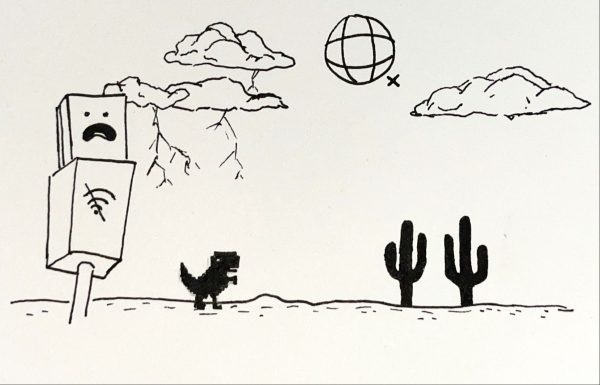Patent system needs integrity restoration
April 13, 2005
Thanks for reading this sentence; now pay me a quarter.
You may be unaware of this, but I recently patented a cognitive process known colloquially as “reading,” and I am now entitled to collect royalties every time someone else uses the method, so cough up.
In a nutshell, that’s the current status of U.S. patent law.
Last week, a federal appeals court denied a patent to the J.M. Smuckers Company, which was trying to patent the method by which it cuts the crust off its Uncrustables line of peanut butter and jelly sandwiches. Although the court ruled against Smuckers, The Associated Press noted the company still retains the general patent for a baked peanut butter and jelly sandwich, which was awarded to it in 1995.
Smuckers may have a lock on the PBJ, but it’s hardly unique among companies who hold ridiculous patents.
Sony recently patented the idea for a video game system that projects a virtual reality environment directly into the brain. However, Sony has no working prototype, no technology or processes for such a system under development, and it doesn’t expect to have any in the near future. In fact, it has admitted it has no idea how such a video game system would realistically work, since they’re not even conducting experiments. All they have is an idea.
In that case, though, wouldn’t the Wachowski brothers have claim to Sony’s patent, since they used almost the exact same idea in their “Matrix movie trilogy?” The idea of a persistent virtual reality world is found throughout science fiction, so why should only Sony profit?
Part of the reason for this silliness is that America has become an increasingly litigious society, and that most of that litigation is brought by corporations. According to the watchdog group Public Citizen, corporations file four times as many lawsuits as individuals every year, and those suits are far more likely to be sanctioned as “frivolous.” Patents are seen as both protection against and reasons to instigate litigation.
Hand in hand with our litigious society has been the rise of a globalized free-market ideology that eschews any notion of a public commons or a public interest. According to this ideology, everything is to be commoditized, and the free market is the best way to mediate every human exchange, even those as small as making a sandwich.
The good news is, some corporations such as IBM have begun to work for reform. Jim Stallings, one of IBM’s vice presidents, recently called for fewer patents to be granted, as well as for the patenting process to be democratized. Instead of having a single person at the U.S. Patent Office decide whether an invention warrants a patent, Stallings suggested opening the process up to academics and the public at large, to guarantee that the public interest was being served and that companies actually used the patents they acquired instead of sitting on them and waiting to profit from someone else’s work. His words are made all the more credible by virtue of the fact that IBM is one of the nation’s leading patent-holders.
The patent system is important because it affords those with exciting ideas the opportunity to bring new products and services to the market without worrying that their inventions will be co-opted by those with more power and money. Restoring the system’s integrity will ensure that innovative Americans are rewarded for their ingenuity.
Columns reflect the opinion of the author and not necessarily that of the Northern Star staff.












